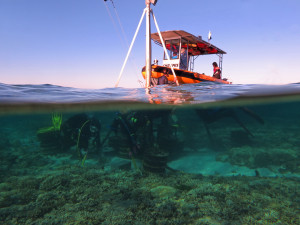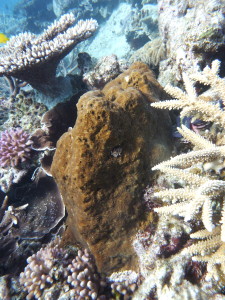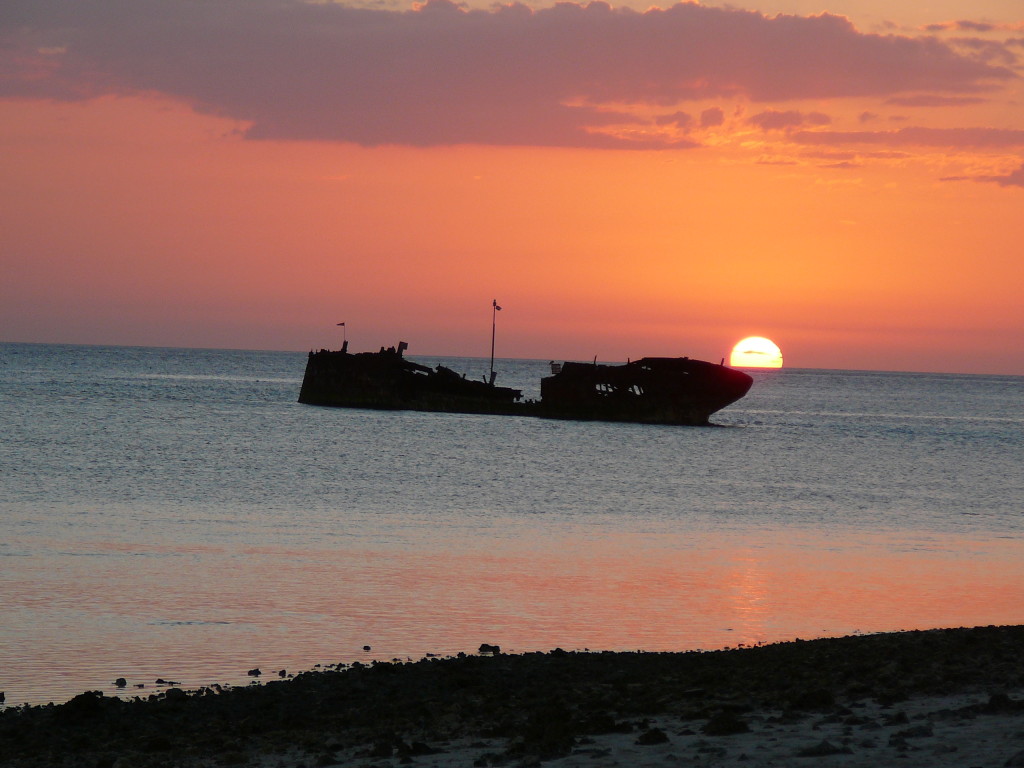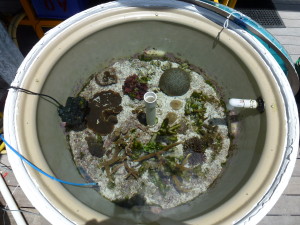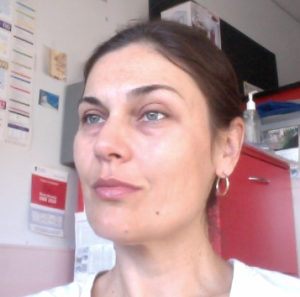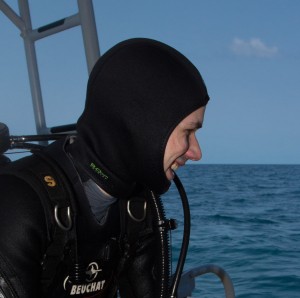[one_half]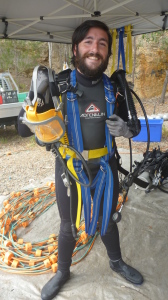 [/one_half]Francisco is from Chile, where he obtained his degree of Marine Biologist at the University of Valparaiso after the completion of a thesis focused on cytogenetics of rocky shore mussels. Immediately after this, he obtained a position for 4 years at the coastal station for marine research (ECIM) from the Pontifical Catholic University of Chile, where he was involved in research that was focused on ecology, photobiology, thermal tolerance, climate change impact and fisheries of marine invertebrates, working along with interdisciplinary groups at the international laboratory of climate change (LINCGlobal) and the Mediterranean institute of advance studies (IMEDEA) in Mallorca, Spain. Ended this period, Francisco moved to Australia to join the Coral Reef Ecosystems Laboratory (CRE Lab) at the University of Queensland where he is currently undertaking his PhD under the supervision of A/Professor Sophie Dove, A/Professor Gene Tyson and Dr. Maria Byrne from the University of Sydney. His PhD project assesses the effects of different ocean warming and ocean acidification scenarios on the performance of sea cucumbers in different processes such as calcium carboate dissolution, recycling of nutrients and the interaction between these invertebrates and different communities present in the sediments they process.[one_half] [/one_half]
[/one_half]Francisco is from Chile, where he obtained his degree of Marine Biologist at the University of Valparaiso after the completion of a thesis focused on cytogenetics of rocky shore mussels. Immediately after this, he obtained a position for 4 years at the coastal station for marine research (ECIM) from the Pontifical Catholic University of Chile, where he was involved in research that was focused on ecology, photobiology, thermal tolerance, climate change impact and fisheries of marine invertebrates, working along with interdisciplinary groups at the international laboratory of climate change (LINCGlobal) and the Mediterranean institute of advance studies (IMEDEA) in Mallorca, Spain. Ended this period, Francisco moved to Australia to join the Coral Reef Ecosystems Laboratory (CRE Lab) at the University of Queensland where he is currently undertaking his PhD under the supervision of A/Professor Sophie Dove, A/Professor Gene Tyson and Dr. Maria Byrne from the University of Sydney. His PhD project assesses the effects of different ocean warming and ocean acidification scenarios on the performance of sea cucumbers in different processes such as calcium carboate dissolution, recycling of nutrients and the interaction between these invertebrates and different communities present in the sediments they process.[one_half] [/one_half]
PUBLICATIONS:
Manzur, T., Vidal, F., Pantoja, J. F., Fernández, M., Navarrete, S. A. (2014), Behavioural and physiological responses of limpet prey to a seastar predator and their transmission to basal trophic levels. Journal of Animal Ecology, 83: 923–933. doi: 10.1111/1365-2656.12199
Llabrés, M., Agustí, S., Fernández, M., Canepa, A., Maurin, F., Vidal, F., Duarte, C. M. (2013), Impact of elevated UVB radiation on marine biota: a meta-analysis. Global Ecology and Biogeography, 22: 131–144. doi: 10.1111/j.1466-8238.2012.00784.x
Accepted:
Vidal-Ramirez, F., Dove, S. Diurnal effects of Holothuria atra on seawater carbonate chemistry in a sedimentary environment.
Under Review:
In preparation:
Conference Proceedings:
Upcoming:
Past conferences:
ECSA55 Unbounded boundaries and shifting baselines: Estuaries and coastal seas in a rapidly changing world, 6-9 September, ExCeL London Exhibition and Convention Centre, London, UK. Title: Effects of Holothuria atra on seawater carbonate chemistry and production under future warming and acidification scenarios. Authors: Francisco Vidal-Ramirez, Olga Pantos, Gene W. Tyson & Sophie Dove. Talk
88th Annual ACRS (Australian Coral Reef Society) conference, 27-29 August 2014, Mercure Hotel, Brisbane, Australia. Title: Role of Holothuria atra in sediment turnover and production under future winter warming and acidification scenarios. Authors: Francisco Vidal-Ramirez & Sophie Dove. Talk.
LIV Annual Meeting of the Biology Society of Chile, 6-10 of November 2011, Hotel Patagonico, Puerto Varas, Chile. Title: Effect of implementation of management areas on the abundance of Fissurella spp in open access areas. Authors: Anna Steel, Miriam Fernandez, Francisco Vidal, Ana Parma, Nancy Barahona, Jorge Guerra. Poster.
IV Binational meeting of Ecology (AsAE and SOCECOL), 8-13 of August 2010, Faculty of Natural and Exact Sciences at Universidad de Buenos Aires, Argentina, Title: Severe effects of hypoxia on behavior, metabolic rate and mortality of larvae of Taliepus dentatus (Milne-Edwards). Authors: Francisco Vidal, Miriam Fernández, Ricardo Calderón, Jessica Barría, Alexandre Fellous. Talk.
2010 Ocean Science Meeting, 22-26 of February 2010, Oregon Convention Center, Portland, Oregon, United States. Title: Influence of UV radiation on variability of grazing and growth rates of plankton communities from the Humboldt Current area. Authors: Alexandra Coello, Francisco Vidal, Sebastien Lasternas, Felipe Maurín, Miriam Fernández & Susana Agustí. Poster.
VII Latin American Congress of Malacology – CLAMA 2008, 3-7 of November, Universidad Austral de Chile, Valdivia, Chile. Title: Study and quantitative analysis of the karyotype of Perumytilus purpuratus Lamarck, 1819. Authors: Francisco Vidal & Rosa Guerra. Poster.
Grants:
2015. School of Biological Sciences Travel Award Prize, The University of Queensland ($1600 AUD)
2012-2016. Becas Chile, CONICYT ($183000 USD)
2009. LINCGlobal and Mediterranean Institute for Advanced Studies (IMEDEA) for processing and analysis of Humboldt Oceanographic Campaign samples ($5700 USD)
2009. LINCGlobal and Pontificia Universidad Católica de Chile for 2009 Humboldt Oceanographic Campaign ($2000 USD)
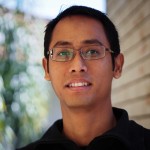 Siham begin his interest in marine science after reading a leaflet mentioning mangrove forest degradation in Indonesia, which brought him to his undergraduate study in 2001 in Diponegoro University, Indonesia. Since then he has been involved both in academic and non-academic activities related to marine conservation in Indonesia, mainly in collaborative researches and public-private partnerships.
Siham begin his interest in marine science after reading a leaflet mentioning mangrove forest degradation in Indonesia, which brought him to his undergraduate study in 2001 in Diponegoro University, Indonesia. Since then he has been involved both in academic and non-academic activities related to marine conservation in Indonesia, mainly in collaborative researches and public-private partnerships.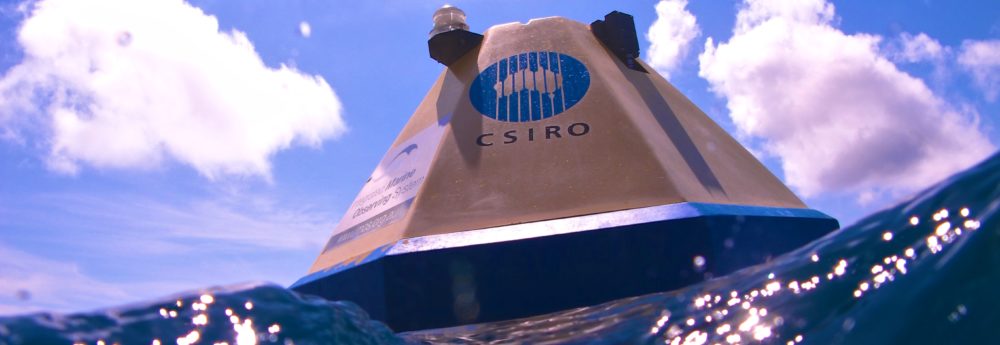
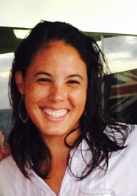
 [/one_half]Francisco is from Chile, where he obtained his degree of Marine Biologist at the University of Valparaiso after the completion of a thesis focused on cytogenetics of rocky shore mussels. Immediately after this, he obtained a position for 4 years at the coastal station for marine research (ECIM) from the Pontifical Catholic University of Chile, where he was involved in research that was focused on ecology, photobiology, thermal tolerance, climate change impact and fisheries of marine invertebrates, working along with interdisciplinary groups at the international laboratory of climate change (LINCGlobal) and the Mediterranean institute of advance studies (IMEDEA) in Mallorca, Spain. Ended this period, Francisco moved to Australia to join the Coral Reef Ecosystems Laboratory (CRE Lab) at the University of Queensland where he is currently undertaking his PhD under the supervision of A/Professor Sophie Dove, A/Professor Gene Tyson and Dr. Maria Byrne from the University of Sydney. His PhD project assesses the effects of different ocean warming and ocean acidification scenarios on the performance of sea cucumbers in different processes such as calcium carboate dissolution, recycling of nutrients and the interaction between these invertebrates and different communities present in the sediments they process.[one_half] [/one_half]
[/one_half]Francisco is from Chile, where he obtained his degree of Marine Biologist at the University of Valparaiso after the completion of a thesis focused on cytogenetics of rocky shore mussels. Immediately after this, he obtained a position for 4 years at the coastal station for marine research (ECIM) from the Pontifical Catholic University of Chile, where he was involved in research that was focused on ecology, photobiology, thermal tolerance, climate change impact and fisheries of marine invertebrates, working along with interdisciplinary groups at the international laboratory of climate change (LINCGlobal) and the Mediterranean institute of advance studies (IMEDEA) in Mallorca, Spain. Ended this period, Francisco moved to Australia to join the Coral Reef Ecosystems Laboratory (CRE Lab) at the University of Queensland where he is currently undertaking his PhD under the supervision of A/Professor Sophie Dove, A/Professor Gene Tyson and Dr. Maria Byrne from the University of Sydney. His PhD project assesses the effects of different ocean warming and ocean acidification scenarios on the performance of sea cucumbers in different processes such as calcium carboate dissolution, recycling of nutrients and the interaction between these invertebrates and different communities present in the sediments they process.[one_half] [/one_half]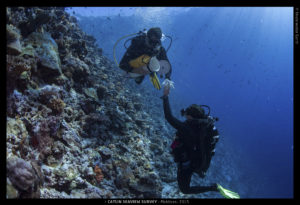
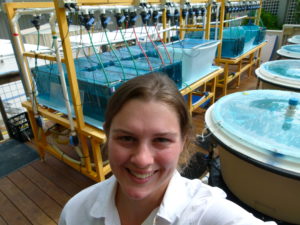
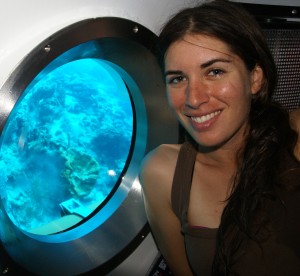 Coral reefs are the result of a constant battle between constructive and destructive forces. When it comes to biologically-driven destruction, erosion by excavating sponges is one of the most important yet understudied mechanisms. Global warming and acidification are predicted to enhance the impact of these sponges on reefs, tipping the balance to the disadvantage of corals and other calcifying organisms. Using Cliona orientalis as her model species, Michelle’s current work aims to decipher the metabolic dynamics of bioerosion and to evaluate the resilience of excavating sponges to future environmental conditions. Michelle joined the Coral Reef Ecosystems lab as a PhD student in 2014 after she finished her Master’s at the University of Amsterdam working on Caribbean reef sponges and majoring in science communication. She completed her first degree at the University of Crete in her homeland Greece.
Coral reefs are the result of a constant battle between constructive and destructive forces. When it comes to biologically-driven destruction, erosion by excavating sponges is one of the most important yet understudied mechanisms. Global warming and acidification are predicted to enhance the impact of these sponges on reefs, tipping the balance to the disadvantage of corals and other calcifying organisms. Using Cliona orientalis as her model species, Michelle’s current work aims to decipher the metabolic dynamics of bioerosion and to evaluate the resilience of excavating sponges to future environmental conditions. Michelle joined the Coral Reef Ecosystems lab as a PhD student in 2014 after she finished her Master’s at the University of Amsterdam working on Caribbean reef sponges and majoring in science communication. She completed her first degree at the University of Crete in her homeland Greece.